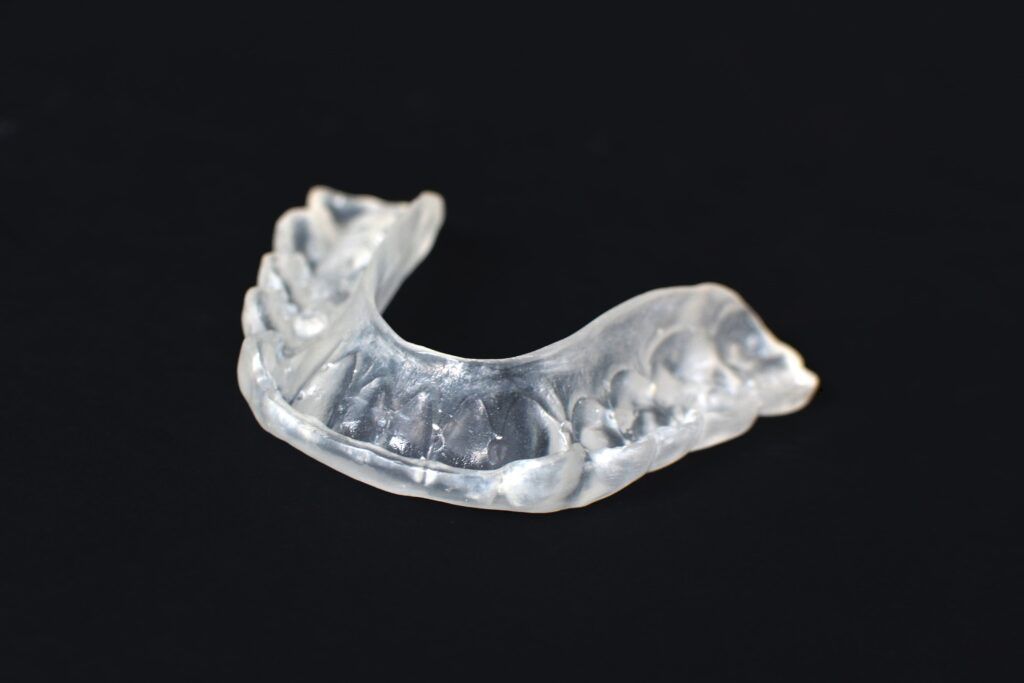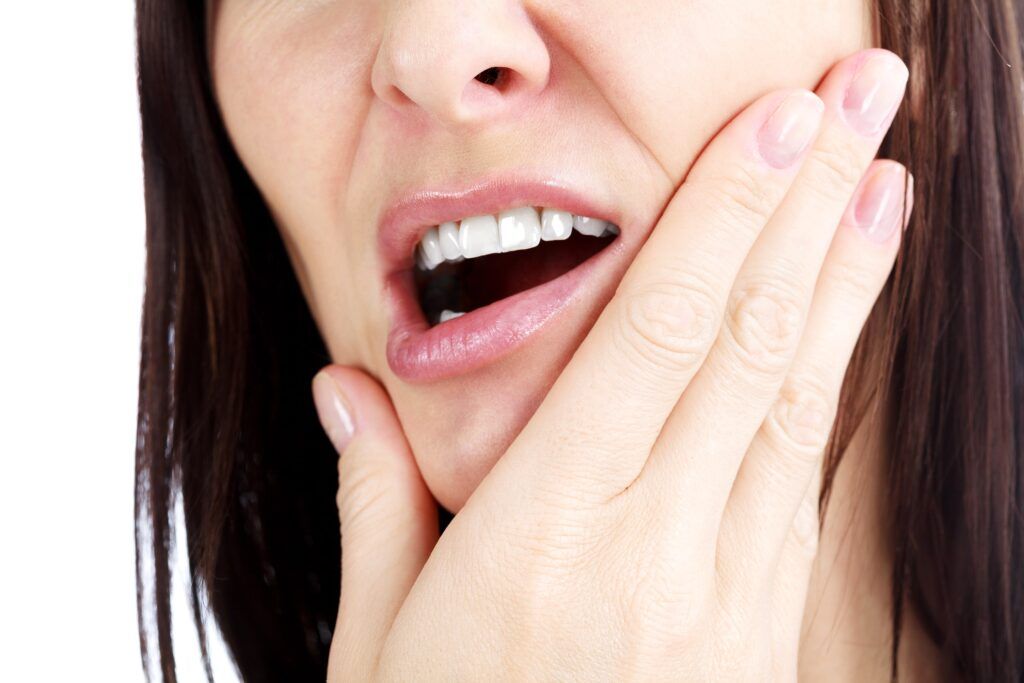Teeth grinding, medically known as bruxism, is a common dental issue that affects many people, often without them even realizing it. This unconscious habit of clenching and grinding your teeth, especially during sleep, can lead to a range of dental and overall health problems. In this blog, we will explore seven signs that might indicate you are grinding your teeth and why it’s crucial to address this issue.
Understanding Bruxism

Teeth grinding, medically known as bruxism, is a condition characterized by the involuntary clenching, gnashing, or grinding of teeth. This habit can occur during the day (awake bruxism) or, more commonly, at night during sleep (sleep bruxism). While occasional teeth grinding may not be a significant concern, chronic and severe bruxism can lead to various dental, oral, and overall health problems.For this reason, it is important to see your dentist if you suspect you may grind your teeth. Listed below are seven possible signs to look out for.
Signs You Might Grind Your Teeth
Jaw Pain:
One of the most noticeable signs of teeth grinding is jaw pain, commonly felt in the temporomandibular joint (TMJ). When an individual clenches or grinds their teeth, particularly during sleep, it exerts significant pressure on the jaw muscles and the temporomandibular joint (TMJ). This repetitive and excessive force can lead to muscle fatigue, soreness, and inflammation in the jaw area. Over time, untreated bruxism can contribute to the development of TMJ disorders, causing chronic and often debilitating jaw pain.
Headaches:

Frequent headaches, especially in the morning, can be a sign of teeth grinding. Headaches can serve as a significant indicator of teeth grinding, or bruxism, due to the interconnectedness of the jaw, facial muscles, and head. When someone grinds their teeth, the excessive pressure and muscle tension involved can radiate pain to the temples, forehead, and even the back of the head. This grinding-induced strain on the jaw and facial muscles can trigger tension headaches or migraines, especially if the clenching and grinding occur frequently, as is often the case with sleep bruxism. If you find yourself waking up with recurring headaches or experiencing head pain during the day, it’s essential to consider the possibility of bruxism as an underlying cause.
Tooth Wear or Damage:
Grinding your teeth can result in noticeable wear and damage to your tooth enamel. When an individual clenches or grinds their teeth, the enamel—the protective outer layer of teeth—experiences excessive and repetitive forces. Over time, this constant pressure can lead to noticeable changes in the teeth, including flattening, chipping, or cracking. The wear and damage are often seen along the biting surfaces of molars and canines, as these are the areas most commonly affected by the grinding motion.
Tooth Sensitivity:
Tooth sensitivity can be a clear indication of teeth grinding, or bruxism, due to the gradual erosion of tooth enamel that occurs with this condition. As individuals grind their teeth, the enamel—the protective outer layer of teeth—can wear down over time. When the enamel is compromised, the underlying dentin becomes exposed, which is more porous and sensitive. This can result in heightened sensitivity to hot, cold, sweet, or acidic foods and beverages. If you find that your teeth have become more sensitive and are reacting to temperature or certain foods in a way they didn’t before, it’s essential to consider the possibility of bruxism as an underlying cause.
Ear Pain:
Ear pain can serve as an unexpected but connected indicator of teeth grinding, or bruxism. The temporomandibular joint (TMJ), responsible for jaw movement, is located very close to the ears. When someone grinds their teeth, the excessive stress and tension exerted on the TMJ can radiate pain to the ears. This can result in earaches, discomfort, or a feeling of fullness in the ears. Often, individuals with bruxism may not immediately associate their ear pain with teeth grinding, as the source of discomfort seems unrelated.
Sleep Problems:
Sleep problems can be a revealing indicator of teeth grinding, particularly in the case of sleep bruxism. When an individual grinds their teeth during sleep, it often disrupts their restful slumber. The loud grinding noises generated can awaken both the person grinding their teeth and their sleep partner, causing fragmented sleep patterns. Additionally, the discomfort and muscle tension associated with teeth grinding can lead to restless nights and frequent awakenings, even if the individual remains unaware of the grinding itself. Over time, these sleep disturbances can contribute to fatigue, daytime sleepiness, and reduced overall sleep quality.
Tired Facial Muscles:
Tired facial muscles can often be a subtle yet telling sign of teeth grinding, or bruxism. This condition involves the involuntary clenching and grinding of teeth, which places excessive strain on the muscles responsible for jaw movement. As these muscles work excessively during grinding episodes, they can become fatigued and sore. This fatigue can extend to other facial muscles, leading to a sensation of tiredness in the face.
How Dentists Treat Bruxism

Dentists employ various methods to treat bruxism, a condition characterized by teeth grinding or clenching. One of the most common and effective approaches is the use of custom-made mouthguards or splints. These oral appliances are designed to fit comfortably over the teeth and act as a protective barrier, preventing the harmful effects of grinding, such as enamel wear and tooth damage. Dentists may also recommend dental correction procedures for misaligned teeth or an abnormal bite, as these issues can contribute to bruxism. Stress management techniques, relaxation exercises, and lifestyle modifications can be suggested to address any psychological factors that may be triggering bruxism, especially in cases of awake bruxism related to stress or anxiety. Additionally, in more severe cases, dentists may collaborate with healthcare professionals specializing in sleep disorders to manage sleep bruxism and its impact on overall health. The choice of treatment depends on the individual’s specific condition and its underlying causes, with the goal of alleviating symptoms, preserving dental health, and improving overall well-being.
Conclusion:
Teeth grinding is a common but often overlooked dental problem that can have a significant impact on your oral health and overall well-being. If you experience any of these seven signs, it’s essential to consult with a dentist who can diagnose and recommend appropriate treatment options. Common treatments for bruxism include custom-made mouthguards, stress management techniques, and lifestyle modifications. By addressing teeth grinding early, you can prevent further dental damage and improve your quality of life. Don’t ignore the signs—take action to protect your smile and your health.

Dr. Sadati possesses extensive experience in all aspects of advanced restorative dentistry, with an emphasis in cosmetic and implant dentistry. He has attained Accredited Fellow status in the American Academy of Cosmetic Dentistry (AACD), the most rigorous, demanding credentialing process in the world. He is the only AACD Accredited Fellow in South Florida.


